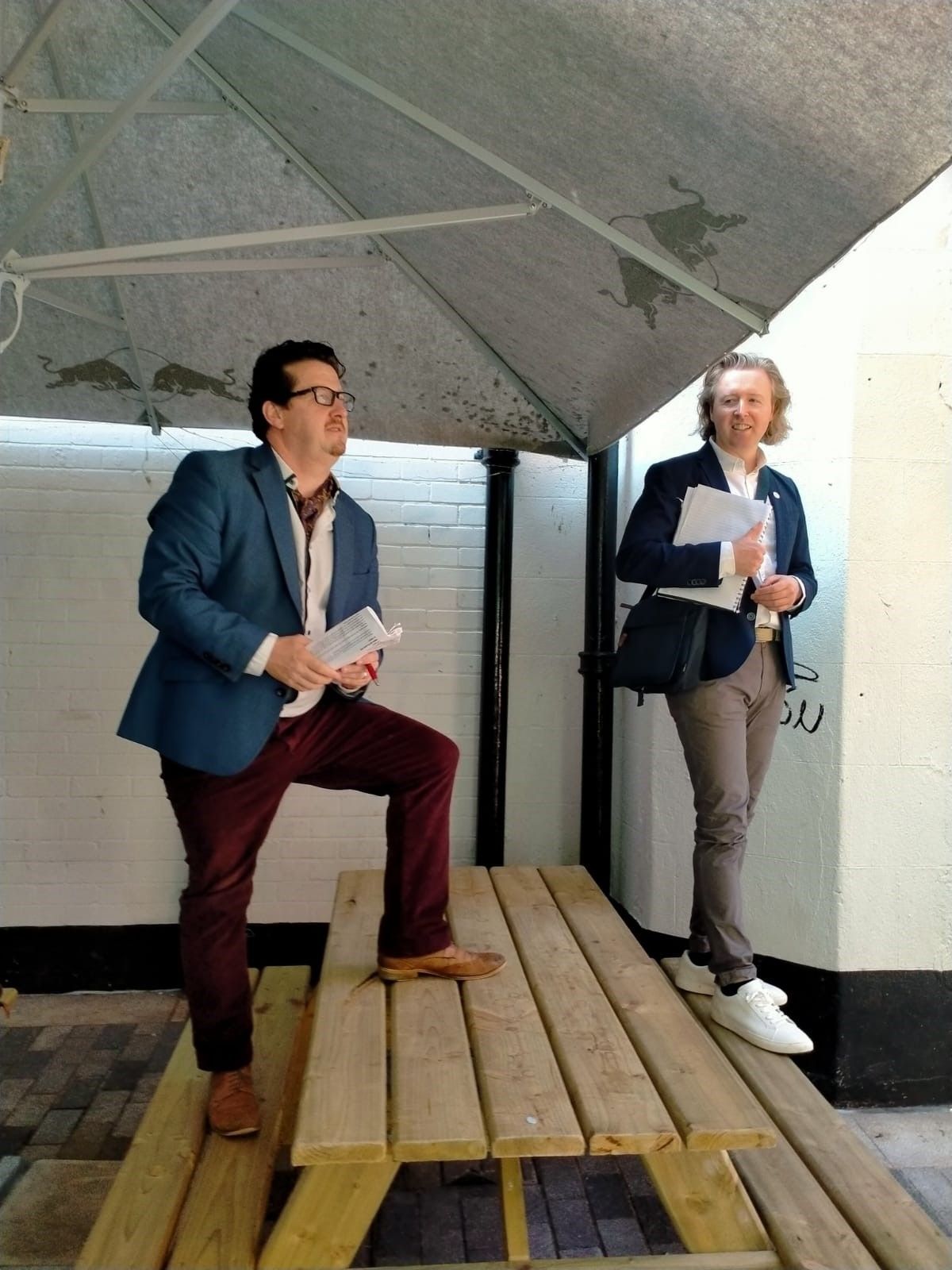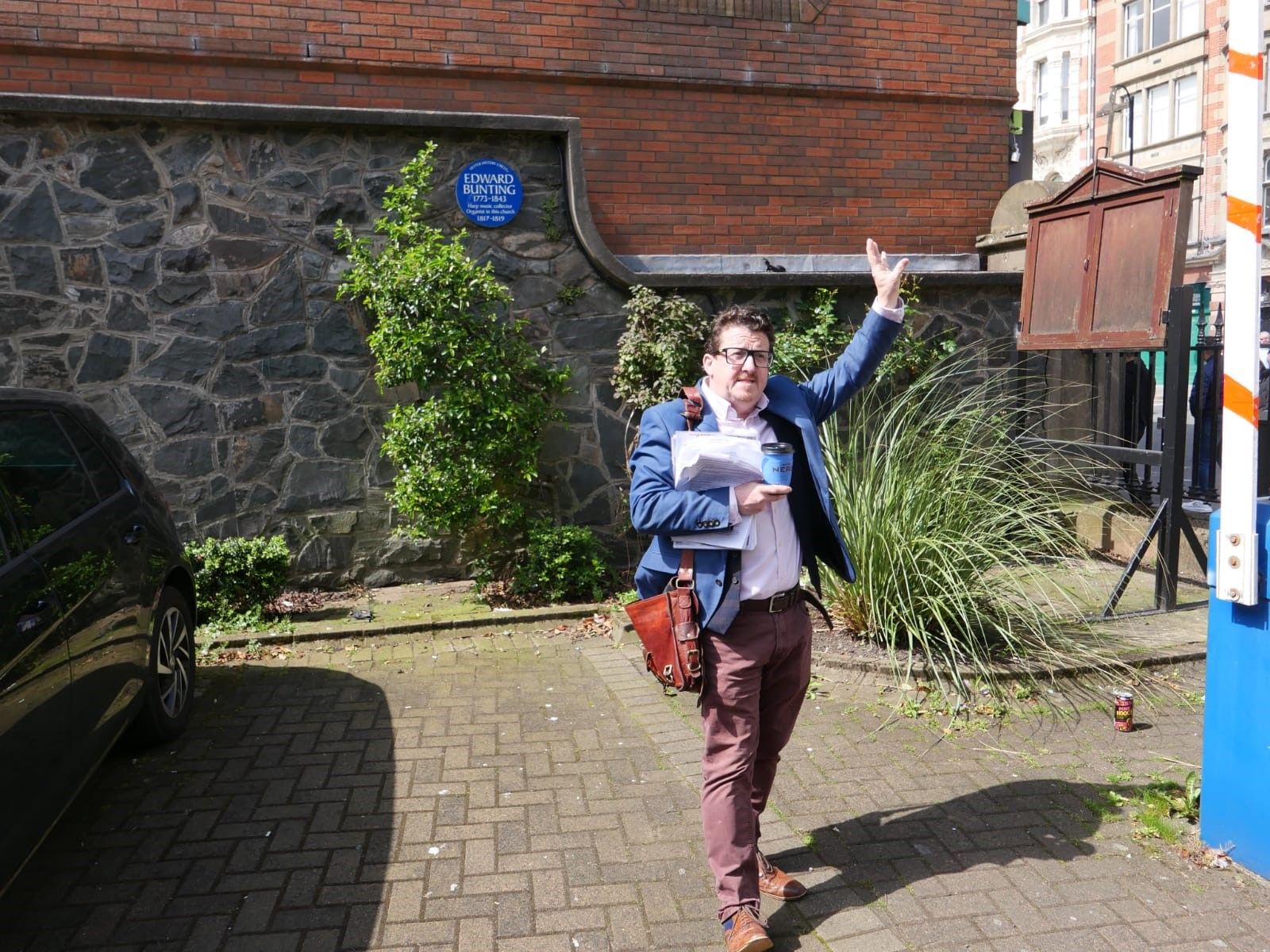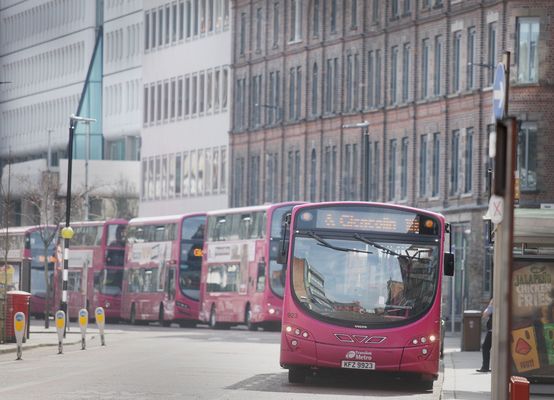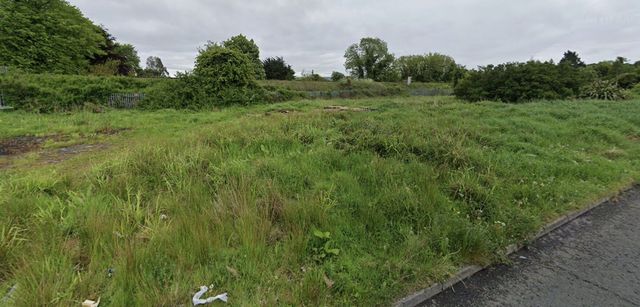THE 1798 Rising in Ireland was one of the most pivotal moments in the history of this island. Radicals and free-thinkers were being influenced by the Enlightenment which was sweeping through Europe in the wake of the French and American Revolutions.
Led by the United Irishmen who were formed by Ulster Presbyterians, disaffected Anglicans, women and Ireland’s majority who were dispossessed and oppressed Catholics, the group fought for universal suffrage, the end of slavery as well as Catholic emancipation and the end to the sectarian divisions.
Renowned local historians Seán Napier and Colm Dore will be hosting their 1798 walking tours as part of this year’s Féile an Phobail, alongside an event which will feature ‘Who Fears to Speak of '98’ at St Mary’s.
Speaking ahead of the St Mary's event, Seán said: “It’ll be like the walking tour, only you’ll be sitting on your seat! It will give you a bit more time to elaborate a bit more on the history and include some music and poetry from the time.
"The talk and tours will focus on Belfast during that period of Enlightenment thinking and how that strain of thought originated from Presbyterians, and attracted the likes of Wolfe Tone and Thomas Russell, who’d heard about these crazy Presbies up the road, and thought they were awesome. Belfast in those days was like Woodstock or Glastonbury to enlightened thinkers. People like Tone and Russell were attracted to Belfast because of its enlightened thinking, not Dublin, which wasn’t at the centre. Belfast led the way in this thinking.”
On the tours and at the talk you’ll be introduced to many figures from history such as William Drennan, Henry Joy McCracken, Wolfe Tone, Thomas Russell and Mary Ann McCracken.
Seán said: “We will touch on how the McCrackens were expunged from history, and how he (Henry Joy) was buried in an unmarked grave. Mary Ann McCracken for a long time was lost to history, she helped found the Ladies Anti-Slavery Association, and even when she was 90 years old in 1861 she was still committed to ending slavery in the United States. Last year Belfast City Council agreed to erect a statue to Mary Ann, and it’s because of the work that local historians have done in driving this.”
HENRY JOY: Seán Napier delivering his 1798 Walking Tour in Joy's Entry, Belfast, with Colm Dore
Seán’s love of the history surrounding the United Irishmen goes beyond just historical interest, coming from a family from Newtownards and a family which is Presbyterian and Church of Ireland, Seán has ancestors who were involved with the United Irishmen in Ballynahinch.
Seán highlighted how his talks and tours explain how it was radical Presbyterians and Anglicans in the North, who were in charge of the rebellion, particularly in the counties of Antrim and Down, were some of the biggest battles took place.
“The Presbyterians and Anglicans came together with the Defenders, who were Catholics, and the joining of the two traditions formed the United Irishmen.”
The talks will also go into detail about the writers and thinkers who influenced the rising in 1798, especially Thomas Paine, whose 1791 book ‘Rights of Man’ is one of the most important books in the Western world. In the book, Paine attacked those who shunned the French Revolution as ‘darkness attempting to illuminate light’. In October 1792 the Irish revolutionary Lord Edward Fitzgerald lodged with Paine, who voiced his support for a French-funded insurrection in Ireland. Indeed, more editions of Paine’s Rights of Man were published in Ireland than anywhere else in the English-speaking world at the time. Thomas Paine in 1797 also met Wolfe Tone and James Napper Tandy and encouraged their plans to surprise the English by landing a French army in Ireland.
Said Seán: “The influence Thomas Paine had on the United Irishmen cannot be underestimated, he said as soon as you see the light, you will never be in the dark again, today we take notions such as being against slavery, universal suffrage and rights for women for granted, but in those days those who thought this way were seen to be wrong, and calling yourself a democrat could land you in prison.”
1/ Here are the sad events that took place today in 1798 when the Crown hanged United Irish leader Henry Joy McCracken just after 5pm on High Street. Belfast.
— Seán Napier (@Seanofthesouth) July 17, 2022
At around noon Henry Joy was brought from the old Artillery Barracks in Telfair's Entry (of Ann Street) and brought pic.twitter.com/HNns5Dh1zR
The aspect of the 1798 rising which will also be featured in the tours and talk, is how the message of the United Irishmen, and the problems they highlighted as being wrong in Irish society, still ring true today.
“People love the history of 1798 because it’s completely non-sectarian. It rises above the sectarian tribalism in Ireland, it liberates people’s minds. Crown Entry, by Crown Tavern in Belfast, is the foundation of democracy in Ireland, where the first society of the United Irishmen met, and discussed the notion of a Republic. There’s no plaque down there to even properly acknowledge it as the foundation of Irish democracy.”
For those interested in seeing the talk, or tours, the details are as follows.
Friday 5 August, St Mary’s University College, 7pm, ‘Who Fears to Speak of ‘98’: A Talk on the formation of the United Irishmen and Belfast’s radical history. No booking required.
Saturday 6 & 13 August, 1798 Walking Tour, Meet at St George’s Church, both at 11.30am, cost £10. Book via https://www.eventbrite.com/e/belfast-1798- unitedirishmen-walking-tour-tickets-160204956337 or pay on arrival.







